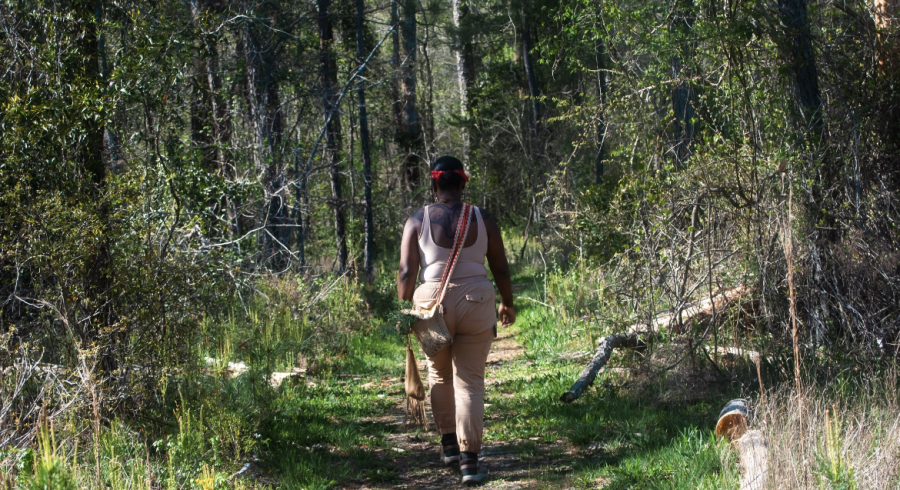On a hot spring afternoon, my mother brought my sister and me to visit our grandmother. The three of us were sitting at the kitchen table with our only living grandparent. Such a beautiful afternoon it was, with the sun shining through the windows and onto the clean floor, the Rocky Mountains in the distance, and the hills close by. Surely I couldn’t have asked the Creator for a better day to hear my grandma’s story.
She had been making berry soup from Saskatoon berries that she had frozen from the past summer. We all had already been telling stories of the past. As my sister and I were talking about living in the city, laughing and having fun with the time we were sharing with our grandma, I asked her, “Mom, what was it like when you were a child?” I call my grandma “Mom” because of how much she is like my own mother.
“Well, my son. It was a difficult time,” she said. Immediately I knew she was talking about when she had to leave home to attend boarding school. “What kind of difficult time, Grandma?” asked my sister, who had no idea of the troubling time of colonization and boarding school. “When I and my brothers and sisters had to move away from our family to attend residential school,” Grandma replied. Looking a bit uneasy, she got up from her chair to tend to her soup. “But I won’t bore you with my old depressing past,” Grandma said.
“But Mom, it’s the past that tells us who we are now.” I remembered talking about that in social studies: how the past is important because it tells our individuality, who we are today. I thought it would be amazingly interesting to hear the story firsthand from someone instead of from a textbook, so I pressed on. “Oh, all right,” Grandma gave in. “You see, back then, it was a time of turmoil and depression for our people . . .”
The story went like this:
Until my grandma was about seven years old, she lived with her mother, father, and all her brothers and sisters. They lived poorly: they didn’t have a lot of money or food. Her father worked all that he could. They didn’t have any type of electronics, except a radio, so she spent her time outside playing in the bushes and simply using her imagination.
One afternoon, playing in the plains of the reserve near her family, she spotted a truck coming down the road with a white man inside. When the truck reached the house, her father came out and greeted the man. They talked outside for a little bit, then proceeded inside. This is where it got sad, something neither my sister nor I could ever handle.
After awhile, she saw some of her brothers and sisters crying and getting into the truck. She had seen this before with other brothers and sisters she had that were her age when they left. Her mother was crying and her father was the most upset she had ever seen him. As young as she was, she knew that she was now leaving her mother and father for a new, alien place. She did something not a lot of children of her age would have thought of doing in those times: She ran, ran straight into the bushes with tears streaming down her cheeks. Deeper and deeper into the bushes she ran, afraid of being caught by the scary white man that once had had to chase one of her brothers who tried to escape. She found a ditch that she lay in, hoping no one would find her.
Around evening, still hiding from everyone and crying aloud, she heard something in the bushes coming toward her. In fear she screamed, not knowing if it was the white man or a wild animal. Either way, it knew where she was. “My... my daughter,” said a familiar voice. Her father came and sat next to her and held her. “My daughter, a new life is waiting for you, and you must go to it. Just do what they say, and don’t fight them or run away from them. Eventually you’ll understand, and you’ll see your mother and me again, I promise.” She was in tears, but got up. And then he took her to the truck. Her life changed dramatically, with sorrow and depression while she was in the residential school from kindergarten to her graduation in grade 12.
“While I was in the school, I had my hair cut short and dressed in clothes materials I never felt before. We weren’t allowed to speak our traditional language or talk back; we had to eat whatever was in front of us, if we liked it or not; and we were beaten when we didn’t really listen. I, however, listened to my father and did all that he told me to do. I never got beaten or abused, but the emotional abuse from seeing my brothers and sisters and friends getting beaten was torture. Sitting there, unable to do anything about what was happening right in front of you . . .” she looked down, seeming sad. “I got off lucky. But a lot didn’t. That’s why afterwards a lot of us went to alcohol.” She shook her head and smiled as she gave my sister and me a small bowl of the berry soup that we both enjoyed.
She sat down, taking a big breath. “My past was difficult but I learned how to deal with it through counseling and self-healing.” I looked down, remembering something particularly interesting I had heard of. “Didn’t you get money from being in the school? Residential or boarding school apology money?” I asked nervously, not sure if it would be rude or offensive, since I already knew she had gotten money. “Yes, I did,” she said. “I was almost not going to take it, either.” My sister looked up from eating her soup. “Give up free money?” she asked naively.
“No, you see, I didn’t need money to help myself. I got back on my feet, went to AA meetings, got myself a big house, a family I love and that loves me. I knew that if I took that money, it would show that all the suffering our people had to go through was worth just whatever was on the check, and I think that’s just stupid.” She emphasized the “stupid” and shook her head. “But when the deadline day came to get the money, everyone was pushing me over the cliff to get it. So I went and got it.” She took another deep breath; we could all feel the emotion in the room. “And when I came home, seeing no one was home, I sat on the couch and cried.” She wiped a tear from her cheek. “I can’t remember how long I cried, but it must have been hours.” And that was the first time I was ever really touched and made teary by a story before.
The residential school changed the Aboriginal people’s worldview, their identity. Today’s generation has many opportunities to help our people, but stories like the one my grandmother told my sister and me really opened our minds. Imagine a world if Aboriginal youth like myself can change the world of tomorrow.
A world that would be.
Spiritriver Striped Wolf, a member of the Piikani Nation, wrote this account about his grandmother, a survivor of both the residential schools and of alcoholism, because her story “really touched me and allowed me to take my identity seriously,” he says. Striped Wolf feels this “story needs to be told . . . .to show others how some elders today need to be respected, take pride in their Aboriginal heritage, and do their part to help make our bruised heritage a better one for the future.” This story was selected as a winner of the Historica-Dominion Institute’s 2009 Canadian Aboriginal Writers Challenge. For information about the Challenge, see www.our-story.ca or www.historica.dominion.ca



